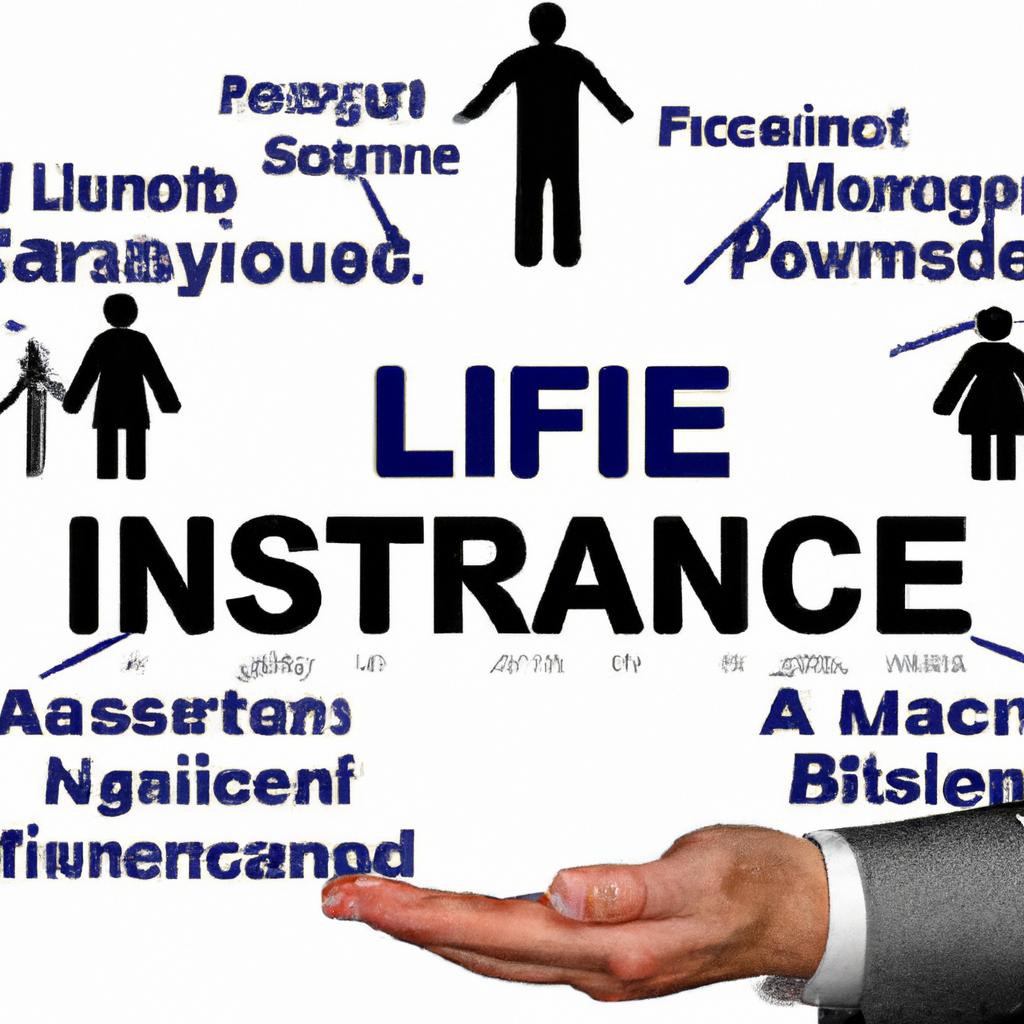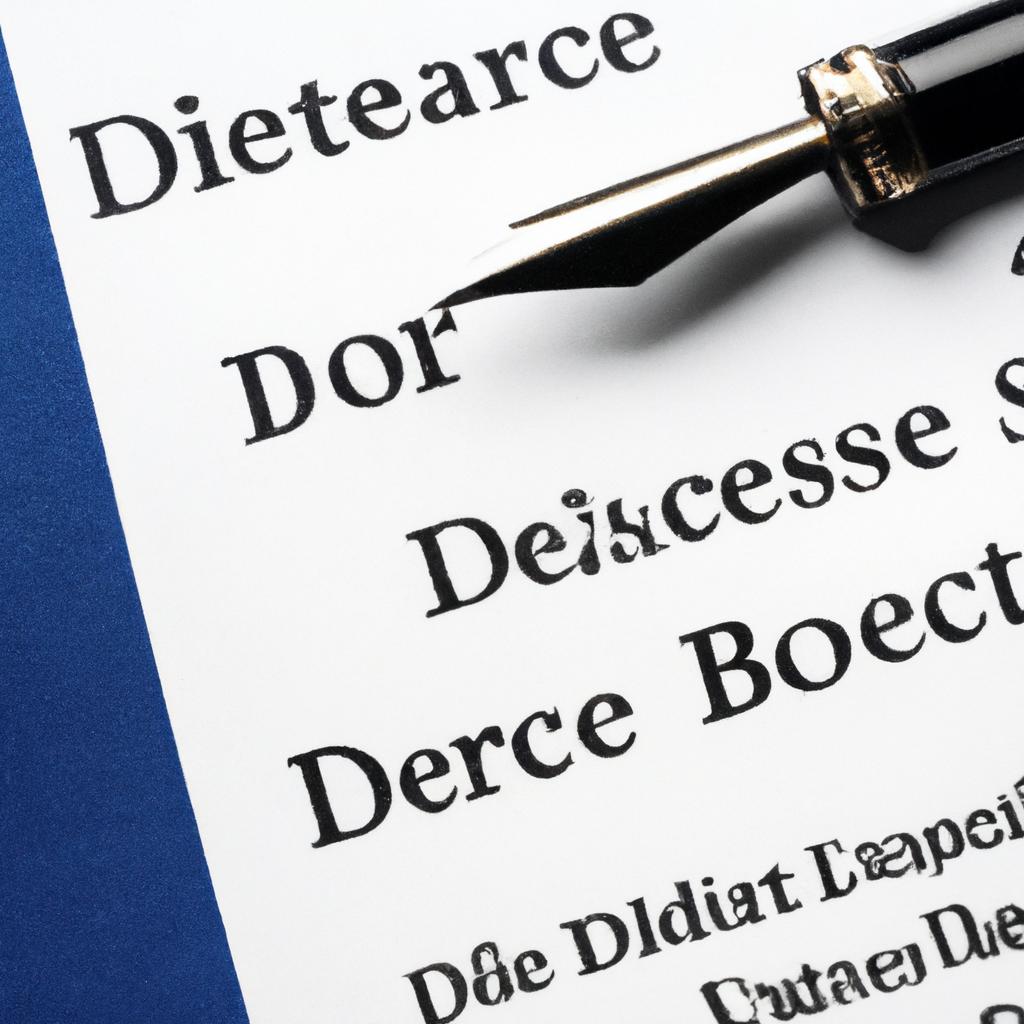Divorce is often a tumultuous and emotional process, as individuals navigate the intricate web of separating assets and untangling shared lives. One aspect that can easily be overshadowed in the midst of this upheaval is the importance of updating one’s estate plan. As experienced legal professionals at Morgan Legal Group in New York City, we understand the intricacies of estate planning after divorce and the critical role it plays in securing your future and protecting your assets. In this article, we delve into the key considerations and steps to take to ensure that your estate plan reflects your new circumstances and effectively safeguards your legacy.
Key Considerations for Updating Your Estate Plan Post-Divorce
After a divorce, updating your estate plan is crucial to ensure that your assets are distributed according to your wishes. Here are some key considerations to keep in mind:
- Beneficiary Designations: Review and update beneficiary designations on life insurance policies, retirement accounts, and other assets to reflect your current wishes.
- Guardianship for Minor Children: If you have minor children, consider who you would like to appoint as their guardian in the event of your passing. Update your will to reflect this decision.
- Power of Attorney: Review and update your power of attorney documents to ensure that the right person is appointed to make financial and healthcare decisions on your behalf.
Additionally, it is important to update your will and trust documents to remove your ex-spouse as a beneficiary or executor. You may also want to consider setting up a trust to protect your assets and control how they are distributed. Consult with an experienced estate planning attorney to ensure that your estate plan reflects your current circumstances and wishes.
- Medical Directives: Review and update your medical directives, such as living wills and healthcare proxies, to ensure that your healthcare wishes are followed in the event of incapacity.
- Property Ownership: Review how your property is titled and update it as needed to reflect your new marital status.

Protecting Your Assets Through Trusts and Life Insurance Policies
When going through a divorce, it’s crucial to update your estate planning to reflect your new life circumstances. Ensuring that your assets are protected and distributed according to your wishes requires careful consideration of trusts and life insurance policies.
Creating a trust can safeguard your assets from being subject to probate, which can be a lengthy and expensive process. Trusts also provide privacy for your beneficiaries and allow for more control over how and when your assets are distributed. Additionally, life insurance policies can provide financial security for your loved ones in the event of your passing, ensuring that they are taken care of financially even after you’re gone.

Ensuring Your Will Reflects Your Current Wishes and Beneficiaries
When going through a divorce, it is crucial to revisit your estate planning to ensure that your will reflects your current wishes and beneficiaries. Failing to update your will after a divorce can lead to unintended consequences, such as your ex-spouse still being entitled to your assets. To avoid such scenarios, consider the following steps:
- Review your will to make sure it aligns with your current wishes
- Update beneficiaries on your life insurance policies, retirement accounts, and any other assets
- Consider creating a trust to protect assets for your children or other beneficiaries
By taking proactive steps to review and update your estate plan after a divorce, you can ensure that your assets are distributed according to your wishes and that your loved ones are taken care of. At Morgan Legal Group, our team of experienced estate planning attorneys can help guide you through this process and ensure that your will accurately reflects your current circumstances.

Navigating the Complexities of Probate and Estate Administration Following a Divorce
When , it is crucial to carefully review and update all estate planning documents to reflect any changes in circumstances. This includes updating beneficiary designations on accounts, insurance policies, and retirement plans to ensure that assets are distributed according to your wishes.
- Review all existing estate planning documents such as Wills, trusts, and powers of attorney.
- Update beneficiary designations on accounts, insurance policies, and retirement plans.
- Consider creating a new Will to ensure that your assets are distributed in accordance with your current wishes.
Furthermore, it is important to work with an experienced estate planning attorney who can guide you through the process and help you make informed decisions about how to best protect your assets and provide for your loved ones after a divorce. By taking proactive steps to update your estate plan, you can ensure that your final wishes are carried out and minimize the potential for disputes among family members.
Q&A
Q: What is estate planning and why is it important after a divorce?
A: Estate planning involves making important decisions about how your assets and belongings will be distributed after your death. It is crucial after a divorce to update your estate plan to reflect your changed circumstances and ensure that your wishes are followed.
Q: What are some of the key documents to update after a divorce?
A: After a divorce, it is important to update your will, trusts, power of attorney, and beneficiaries on retirement accounts and life insurance policies. This ensures that your assets are distributed according to your current wishes and not according to outdated documents.
Q: What are some common mistakes people make in estate planning after a divorce?
A: One common mistake is forgetting to update beneficiary designations on accounts and insurance policies, which can result in assets going to an ex-spouse unintentionally. Another mistake is not updating wills or trusts to remove an ex-spouse as a beneficiary or decision-maker.
Q: How can a lawyer help with estate planning after a divorce?
A: A lawyer can provide guidance on updating documents, help ensure that your wishes are legally binding, and assist in navigating complex estate planning laws. They can also help you create a plan that protects your assets and provides for your loved ones according to your wishes.
Q: Are there any tax implications to consider in estate planning after a divorce?
A: Yes, there may be tax implications to consider, such as capital gains taxes on the transfer of assets or estate taxes. A lawyer or financial advisor can help you understand these implications and create a plan that minimizes taxes while still achieving your estate planning goals.
To Wrap It Up
As you navigate the complexities of estate planning after divorce, remember that it is a process that requires careful consideration and attention to detail. By updating your will, beneficiaries, and other important documents, you can ensure that your assets are distributed according to your wishes. Even though divorce can be a challenging time, taking the necessary steps to protect your estate can provide peace of mind for you and your loved ones in the future. Remember, it’s never too late to start the process and create a plan that reflects your current circumstances. Stay informed, stay proactive, and always prioritize your financial security and well-being.
 Estate Planning After Divorce: What You Need to Know
Estate Planning After Divorce: What You Need to Know
Going through a divorce is a difficult and emotional time, and you may find yourself overwhelmed with all the changes happening in your life. Among the stress and emotions, it can be easy to overlook important practical matters, such as updating your estate plan.
Estate planning after a divorce is essential to ensure that your assets are distributed according to your wishes, especially if you have children from the previous marriage. In this article, we’ll discuss all the important aspects of updating your estate plan after a divorce.
Why Update Your Estate Plan After Divorce?
Divorce affects not just your personal life, but also your financial and legal affairs. If you have an existing estate plan, it’s crucial to review and revise it after divorce to reflect your current circumstances. Here’s why:
1. Protect Your Children’s Inheritance
If you have minor children from your previous marriage, they could be at risk of not receiving their rightful inheritance if you don’t update your estate plan. In the event of your passing, your ex-spouse could potentially inherit your assets if you don’t specify otherwise in your plan. Updating your plan ensures that your children are protected and receive the inheritance you intended for them.
2. Change Beneficiary Designations
If you named your ex-spouse as a beneficiary on your life insurance policy, retirement accounts, or other assets, you’ll likely want to change these designations after a divorce. If you fail to update them, your ex-spouse could still inherit these assets, regardless of what your divorce settlement states.
3. Appoint New Decision Makers
Your estate plan may include documents like a durable power of attorney, which gives someone the legal authority to make decisions on your behalf if you become incapacitated. If you had appointed your ex-spouse for this role, it’s crucial to update it with a new person whom you trust to make decisions for you. It’s also essential to update documents such as a healthcare power of attorney and a living will to reflect your current wishes.
4. Address Real Estate and Other Joint Assets
If you and your ex-spouse owned any properties or other joint assets together, you’ll need to update your estate plan to reflect the changes in ownership. You may need to change the title on your assets or create a plan for dividing them between you and your ex-spouse.
5. Avoid Probate Issues
If you pass away without updating your estate plan, your ex-spouse could potentially contest the validity of your plan and cause it to go through probate court. This can result in delays, costs, and disputes among your heirs. Updating your plan ensures that it’s legally binding and helps prevent any potential challenges.
Steps to Update Your Estate Plan After Divorce
Now that we’ve established the importance of updating your estate plan after divorce, let’s look at the steps involved in the process.
1. Review Your Existing Plan
The first step is to review your existing estate plan to understand what needs to be updated. Look at your will, trusts, beneficiary designations, and other related documents to determine what changes you need to make.
2. Revise Your Will
One of the most critical documents to update is your will. If you and your ex-spouse had a joint will, it’s no longer valid, and you’ll need to create a new individual will. Take the time to update all beneficiaries, guardians, and other important provisions in your will.
3. Revise Beneficiary Designations
Review your life insurance policies, retirement accounts, and any other assets with named beneficiaries and update them accordingly. Ensure that your ex-spouse is no longer listed as a beneficiary and choose appropriate alternate beneficiaries.
4. Revise Trusts
If you have any trusts set up, you’ll need to revise them to reflect your current circumstances. This may include changing beneficiaries, trustees, and terms of the trust.
5. Update Power of Attorney and Health Care Documents
Revise any power of attorney or health care documents to appoint new agents. It’s also essential to create new documents or amend any existing ones, such as a living will, to reflect your current wishes.
6. Consider Estate Tax Implications
A divorce can also have significant tax implications on your estate. Consult with an estate planning attorney and a tax professional to understand how your divorce may affect your estate and if any changes need to be made.
In Conclusion
Divorce is a challenging time, but it’s essential to prioritize updating your estate plan to protect your assets and ensure your wishes are carried out. Consult with an experienced estate planning attorney to guide you through the process and help you create a plan that meets your needs.
Remember, updating your estate plan after a divorce is not a one-time event. Life is constantly changing, and it’s essential to review and revise your plan periodically to ensure it stays up to date with your wishes and current circumstances.


